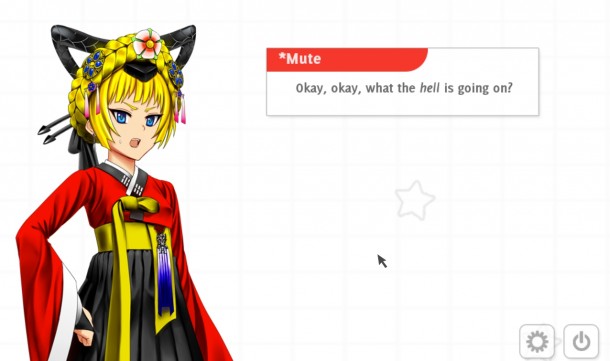Our Verdict
Beneath the endless text, Analogue is smart, focused, and refreshingly unpleasant stuff with a style all of its own.
PC Gamer's got your back
The danger of blending fiction and interactivity is that both elements could suffer: the fiction gets chopped into pieces and shuffled out of order, while the interactivity becomes the ludic equivalent of page-turning, throwing players the odd puzzle to keep them paying attention, and letting them loose on a decision every few paragraphs to maintain the illusion of agency.
Analogue: A Hate Story circumvents most of these problems with some clever structural tinkering. For one thing, Christine Love's latest visual novel drops you into the narrative long after the bodies have turned cold: you're an archaeologist, picking through the human debris, and you bring no real expectations of shaping the story. For another, while Love's themes touch on everything from epistemology to domestic violence, she shamelessly employs the best techniques of soap opera to express them, offering up melodrama, high tragedy, and a plotline that allows for a game-changing revelation every five minutes. Analogue traps its players within a tabloidy little loop, in other words, and it can be surprisingly hard to break free.
As the names suggest, Analogue is a companion to Love's previous game, Digital: A Love Story, trading the early days of computer networks for the far future. Out in the cold wastes of space, a starship called the Mungunghwa – previously sent to colonise distant planets and longfeared destroyed – has suddenly reappeared on the radar. Your job is to pick over the craft's data and uncover its fate, and you'll be aided by two of the Mungunghwa's female AIs – both of whom offer radically differing opinions as to what went wrong. From this point on, almost everything is a spoiler; Analogue is short but ingeniously constructed, and watching its narrative clockwork spinning is a huge part of the appeal.
Faced with such a dense story, interaction inevitably takes a back seat; most of the game is spent reading text logs and showing interesting sections to the AIs in the hopes of triggering memories. Your artificial companions are lightly animated but richly characterised, and despite the limitations of your communication (other than highlighting text, you're generally left steering their conversations with a yes or no) their parallel testimonies help bring angsty life to what could otherwise be a rather drab inquest. To get the entire story you're going to have to play through the campaign at least twice, and it's a testament to Love's skills that this doesn't feel like a chore.
Switching from brutality to whimsy in seconds, while its narrative hinges on the inadequacies of technology and the reliability of human cruelty, Analogue should be a worthy mess. What rescues it is a flair for the dramatic and an acknowledgement that, even as we reach for the stars, we're taking the same old problems with us.
Review by Chris Donlan.
Beneath the endless text, Analogue is smart, focused, and refreshingly unpleasant stuff with a style all of its own.
PC Gamer is the global authority on PC games—starting in 1993 with the magazine, and then in 2010 with this website you're currently reading. We have writers across the US, Canada, UK and Australia, who you can read about here.

